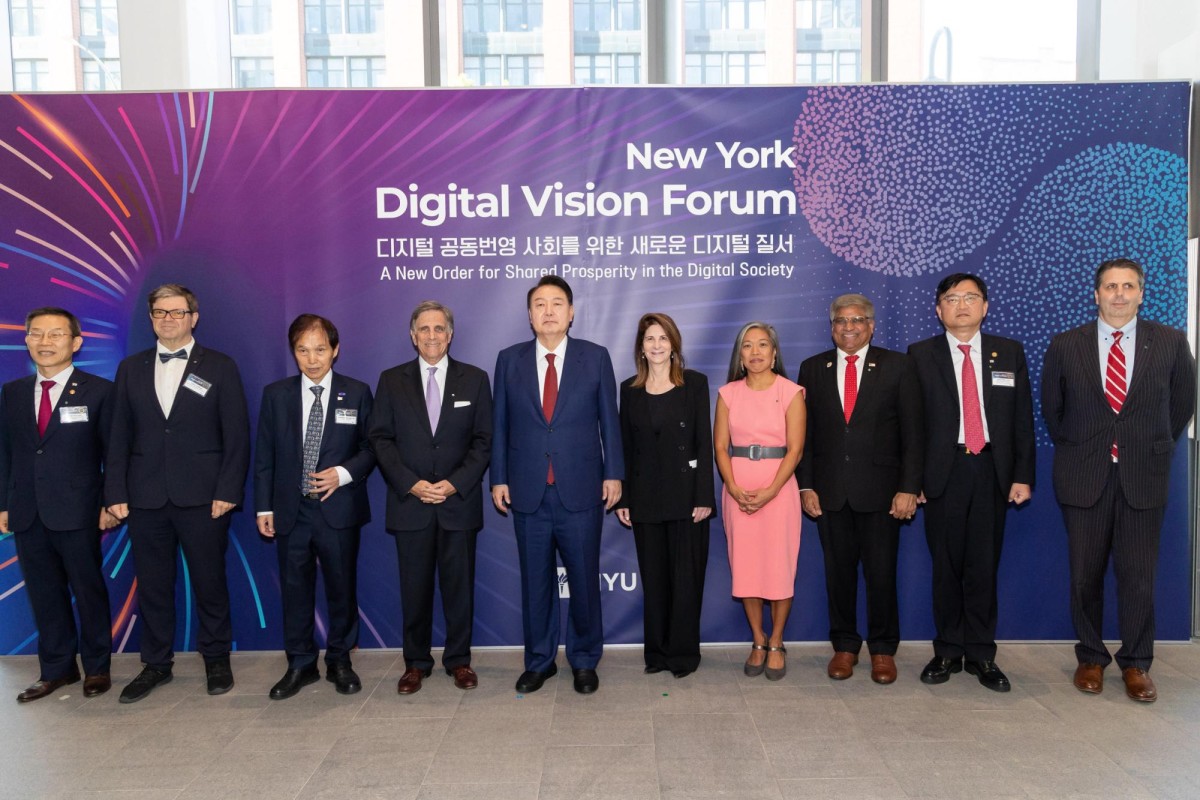NYU recently launched an initiative alongside the Korean Advanced Institute of Science and Technology, a national research university in South Korea, to expand its research on the social impact of artificial intelligence.
The institutions began the initiative at the Digital Vision Forum on Sept. 21, where NYU president Linda Mills signed an agreement with KAIST president Kwang Hyung Lee. The move will build on the existing partnership between KAIST and the university, which was established last September.
The research program, which will be headquartered at NYU, will help address ongoing discussions about the impact of AI on society and strategies for navigating technological advancements. Kyunghun Cho, deputy director of NYU’s Center for Data Science, said these conversations have primarily been centered around metropolitan areas like New York City.
“Working together with the top scholars and researchers from completely different countries really is a great way for us to ensure that what we do is something that is relevant beyond the local context,” Cho said in an interview with WSN. “Being able to talk with people with a diverse background almost always is going to be a great opportunity not only for me but for researchers, including professors and students at both NYU and KAIST.”
At the event, Mills said the collaboration between the two institutions will help further research in artificial intelligence at both institutions.
“Across our global network, NYU is dedicated to educating students and producing research that will make a difference,” Mills said. “Indeed, this is what fuels our partnership with KAIST, a collaboration that now brings together over a hundred researchers who work across nine key areas, focusing on AI and digital technology.”
KAIST professor Jong Chul Ye, who was at the forum, said the two universities complement each other, as the research institution is ranked highly in engineering while NYU is ranked highly in the humanities.
“By talking and collaborating with professors at KAIST, I expect we will have a much broader view into what it means for AI to have an impact on any type of society,” Ye said. “[The partnership] makes students more internationalized and globalized. Nowadays, it’s a globalized world, especially [for] young generations. This is a good platform for actual implementation of global education.”
Contact Graylin Lucas at [email protected].

























































































































































